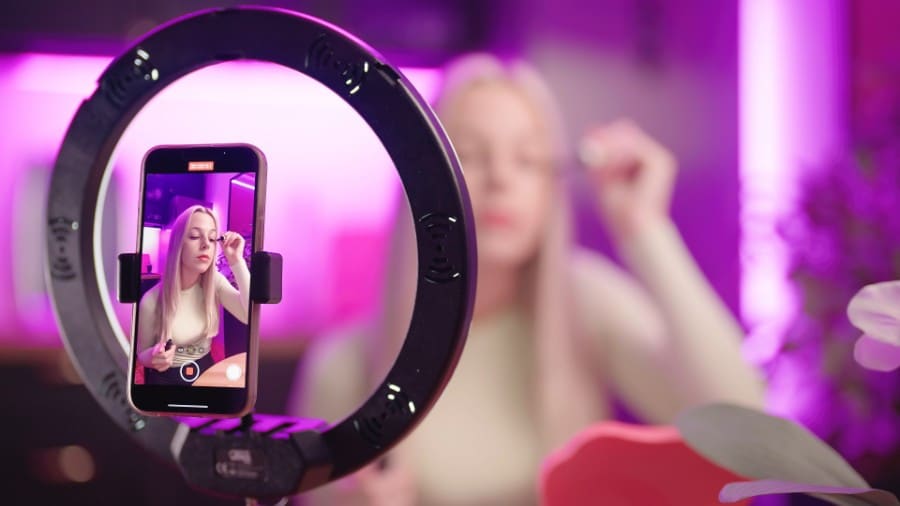
My youngest daughter is considered to be a proverbial influencer. Albeit the worst paid such person on the planet. She chose the wrong product to be an influencer of. Our youngest baby reads more books in a month than ants in an open jar of honey. She has a half dozen authors that she loves, and because of social media, she’s able to share her thoughts, reviews, criticisms, and opinions about the works these authors produce.
Because of social media, she’s grown a national book club of like-minded followers of the same authors. The six of them recently met in Dallas for a big book bonanza, with 200 authors and more than 2,000 fans attending. My daughter spent weeks figuring out how she and her peeps were going to get their books signed, selfies taken, after-party invites received, etc. She had the whole itinerary planned.
When she and her peeps got to the front of an author’s autograph line, the author ‘knew’ my daughter and her posse. Which earned them free books, selfies, tchotchkes, and notoriety. She returned home with three more boxes of books than she left with. FedEx delivered the three boxes on our front porch two days after she returned. If only it was cash.
My daughter also has been a guest on a radio show on a Philadelphia radio station every other Thursday for about 18 months because of said author fandom. I know the cash windfall is coming any day.
But when it comes to influencers, or when it comes to chicanery in marketing, color me skeptical. In part the first of this three-part saga, we discussed the importance of authenticity in Leadership. This middle installment will examine the importance of authenticity in marketing.
When it comes to influencers, I’m cautious.
Why should we trust such a person? Do they know me, my likes, my dislikes? But the lucrative influencer market is a microcosm of marketing in general.
In a study released by the Lindenwood University School of Business, 86% of consumers say authenticity is important when deciding what brands they like and support. In the same report, the majority of consumers believed most brands are NOT creating content that resonates as authentic.
That’s the bottom-line answer to your question…why does my marketing have to be authentic? We know that for a customer to walk into your establishment and make a purchase or use their credit card to buy something off of your website, they need to know you, trust you and like you.
The biggest difference in marketing today is the proverbial elephant in the room. Social media. Before someone walks into your restaurant, your mattress center, or your hardware store, there’s a pretty good chance that the consumer has checked you out online at any number of rating services. There’s a pretty good chance that they’ve asked their online ‘friends’ about your reputation, if you’re legit, and if you’re any good (like you say in your marketing). In a New York Times article, 90% of millennials agreed that brand authenticity is key when they make purchasing decisions.
Ashley Deibert, writing in Forbes magazine, said that “for so long, brands have valued traits like clever, funny and witty over traits like honest and trustworthy…” Mostly because of social media, Deibert argues you can’t get away with the former at the expense of the later. She concluded that, “audiences naturally shudder in response to falsity.”
So how do we establish authenticity in our marketing?
Great question.
First, you need to establish the core values of your enterprise. All who are employed in that enterprise need to know what those values are, and they need to know that if they do not live up to those values it is cause for dismissal. You cannot pull off authentic marketing without strong leadership.
Second, you need to do two basic things with your communications. You need to make an honest connection with your consumers, and you need to be consistent. For example, the message you might use in your radio advertising campaign must be reflected in the messages you’re using in your social media channels. It’s not the exact same words as the ad campaign (it can be), but it must be a similar sentiment. They must be recognizable as being sister and brother.
If you are able to accomplish those basics (and they’re not easy to do), the benefits can be tremendous:
- Your Brand grows and becomes established
- Your cash registers consistently go, Cha Ching
- You develop customer loyalty and thereby…
- Strong word-of-mouth advertising (on those pesky social media platforms)
- Your enterprise becomes the ‘go-to’ for whatever product or service you offer.
As I said earlier, influencing the public is not a new phenomenon. Back in the day (yes, I know I’m dating myself), I’m not sure if my mom bought Beauty Mist Pantyhose because Super Bowl winning quarterback Joe Namath was the spokesman, or if the Hamilton Beach Popcorn Maker ended up in our kitchen because Namath claimed, “There’s nothing I enjoy more than hot buttered popcorn.” I don’t know if my dad ever drank Miller Lite because the beer giant ran one of the most creative and humorous campaigns for a decade. The Miller Lite All-Stars consisted of former athletes, comedians, entertainers and even mystery author Mickey Spillane. For ten years, these guys argued whether or not Miller Lite was less filling or tasted great.
So, while it was fashionable, back in the day, to hand your neighbor a Miller Lite over a Saturday barbecue because Hall of Fame linebacker Dick Butkus told you it tasted great, in today’s business climate, the worst thing you can do is to be a shady influencer.
- We Got a Freebie - December 2, 2025
- Do You Keep Your Promises? - November 20, 2025
- Influencers Are Charlatans - October 8, 2025
